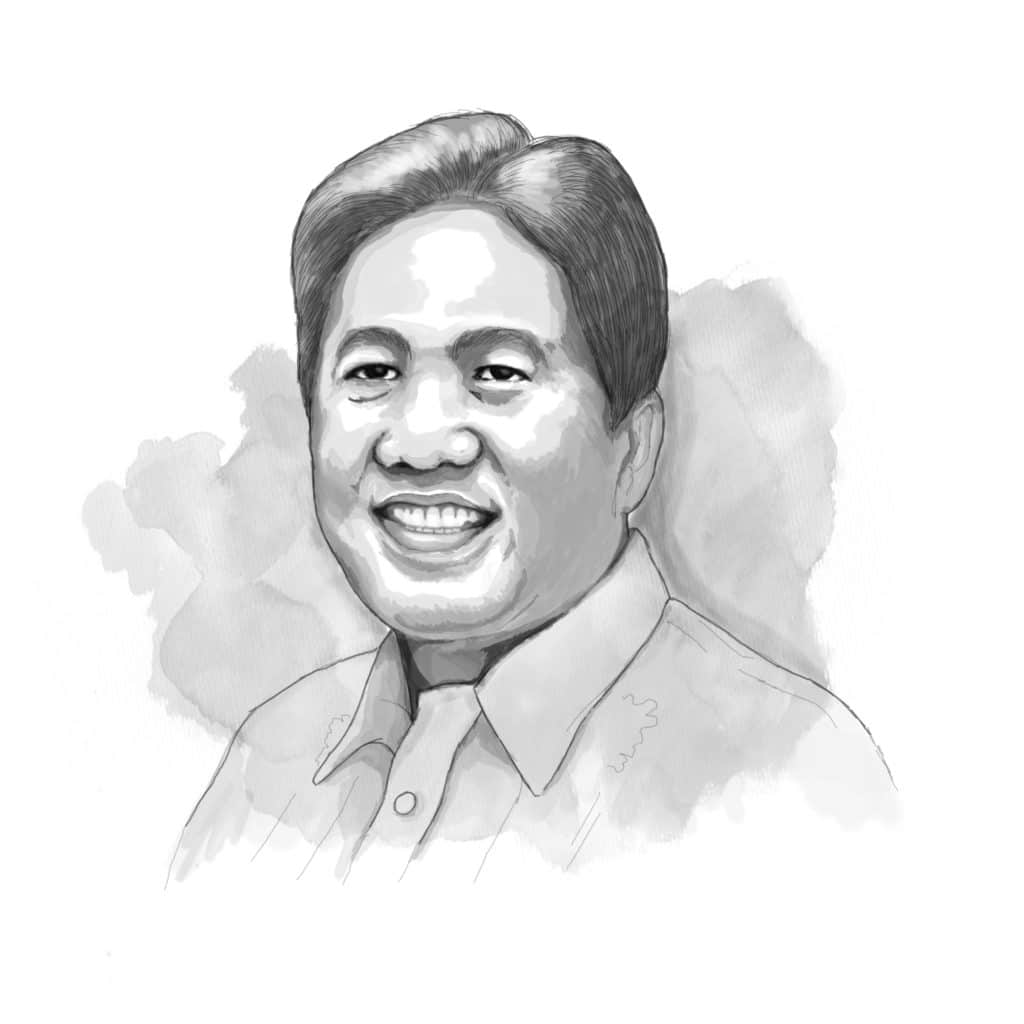ENDEAVOR

Filipino-American Nobel laureate Maria Ressa shared the limelight with German Foreign Minister Annalena Baerbock before some 1,500 participants at the 17th Global Media Forum earlier this week in Bonn under the auspices of the state-owned broadcasting company Deutsche Welle.
Minister Baerbock pushed for protection of the physical and digital spaces of journalists, deploring the violence unleashed against them in Gaza, Afghanistan, Sudan, and in autocratic regimes. “Let's not forget (that) where press freedom is under pressure,” she warned, “freedom itself is in danger for all citizens.” She also called for the international regulation of artificial intelligence (AI) so that “technology does not distort the digital spaces for independent journalistic voices.”.
For her part, Ms. Ressa said today’s problem concerning press freedom “is not about content. It’s about data.” She pointed out: “The insidious manipulation not just of algorithms, not just of artificial intelligence, but now when you have generative AI, where you can create...several deep fakes... you will not be able to tell the difference. So you will not be able to tell fact from fiction.” She pressed for the enactment of laws that will stem the tide of surveillance capitalism.
Surveillance capitalism needs to be understood better, as it has virtually held captive millions of people worldwide now engulfed by the digital revolution. In 2019, the year before the onset of the Covid-19 pandemic, an American scholar called attention to an existential threat to human freedom when she published The Age of Surveillance Capitalism: The Fight for a Human Future at the Frontier of Freedom.
Dr. Shoshana Zuboff, professor emerita at the Harvard Business School declared that the starting point in this struggle is to recognize the imperative “to hunt the puppet master, not the puppet. Technology is not the culprit, but the strawman “that imbues technology and commands it into action...a logic in action and not a technology.”
Her comprehensive definition of surveillance capitalism is divided into eight parts: “1 – A new economic order that claims human experience as free raw material for hidden commercial practices of extraction, prediction, and sales; 2 – A parallel economic logic in which the production of goods and services is subordinated to a new global architecture of behavioral modification; 3 – A rogue mutation of capitalism, marked by concentrations of wealth, knowledge, money and power unprecedented in human history; 4 – The fundamental framework of a surveillance economy.”
The first part is already quite formidable. So let’s try to understand what she means.
Prof. Zuboff notes the significant intrusion into the realm of privacy and individual freedom. She labels this as “a rogue mutation,” which implies anomaly, even criminality, and then proceeds to describe how power has been amassed and concentrated in an unprecedented manner.
Now on to the second part of the definition of surveillance capitalism: “5 – As significant a threat to human nature in the twenty-first century as industrial capitalism was to the natural world in the nineteenth and twentieth; “6 – The origin of a new instrumentarian power that asserts dominance over society and presents startling challenges to market democracy; 7 – A movement that aims to capture a new collective order based on total certainty; and 8 – An expropriation of critical human rights that is best understood as a coup from above: an overthrow of the people’s sovereignty.”
Notice the distinction she makes between human nature and the natural world, two separate realms, that have been the focal areas of capitalist exploitation. But while industrial capitalism has inflicted deleterious consequences in terms of destroying the natural environment, surveillance capitalism has brought on far more harmful consequences in terms of undermining individual privacy and eroding human freedom.
Recall that during more than three and a half years when the novel coronavirus ran rampant worldwide, there was an exponential growth in technology-mediated transactions that enabled people to carry on under extreme conditions of quarantine and lockdown. Such transactions were enabled by mobile devices that automatically compiled information on the user’s preferences and generated alternatives for choosing products and services.
At the World Association of Newspapers (WAN-IFRA) conference in Taipei last year, Richard Gingras, Google vice president, addressed concerns aired on the perils posed by Artificial Intelligence (AI): “I far prefer the more accurate term of machine learning versus the projectional nature of the phrase Artificial Intelligence. These are language models of probability, not creators of new concepts or intellectual ideas.” I believe he nailed it when he said: “The need and the challenge is to develop better models to generate constructive content and help identify the malevolent content that will be created.”
He noted that most tools in use today are “language models, not knowledge models,” that is, “they are predicting the next word in strings of text based on massive modeling of human expression.” He said: “At Google, query understanding has been key to our work with Search for 25 years — understanding the query, determining how best to answer that query.” He emphasizes that, contrary to the predator view, Google is taking a “principled approach” in its “ever evolving quest” to develop AI products.
Shifting to journalism in her conversation with Minister Baerbock, Maria Ressa underlined the need to keep pace with technology while maintaining fidelity to facts and the truth: "If you don't have facts, you don't have truth. If you don't have truth, you don't have trust.”
Reflecting on her virtual trial by fire before she became a Nobel laureate, she observed the improvement in the climate for purposive journalism in the land. She also called for an end to “coded bias, which means further marginalizing online the marginalized group’” and finally, to actively deploy journalism as an antidote to tyranny.